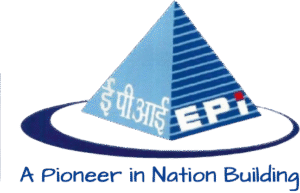A career at Hindustan Petroleum Corporation Limited (HPCL) is a dream for many aspirants across the country. With its rich legacy, innovative work culture, and strong presence in India’s energy domain, HPCL offers more than just a job — it offers a future. Among the various roles it opens for young professionals, the Junior Executive position stands out as an excellent opportunity for those who aspire to grow in a prestigious public sector organization.
If you’re eyeing the HPCL Junior Executive position in 2025, this guide walks you through every essential detail — from eligibility and selection stages to the syllabus and preparation strategy.
What the Junior Executive Role Is All About
This role is crafted for professionals who are enthusiastic, sharp, and ready to contribute to HPCL’s operational and strategic goals. Whether you’re deployed in engineering, digital systems, or support services, you’ll be working on projects that have national significance.
The job demands a combination of technical expertise, teamwork, adaptability, and innovation. It’s perfect for candidates who want to immerse themselves in challenges and contribute to real-time decision-making in a highly respected organization.
Who Can Apply in 2025?
To be considered for the Junior Executive post, candidates typically need to have a graduate or postgraduate degree in relevant streams. For instance, if you’re applying in the engineering domain, having a degree like B.E. or B.Tech in Mechanical, Electrical, Civil, Chemical, or Instrumentation is usually expected. Similarly, those applying for IT or Finance streams must possess the necessary educational credentials like MCA, MBA, or other relevant qualifications.
Age is another factor to keep in mind. While the standard upper age limit is usually in the range of 25–30 years, some relaxations are available for candidates belonging to SC/ST, OBC (Non-Creamy Layer), Persons with Benchmark Disabilities, and Ex-Servicemen categories.
Fluency in English and basic computer skills are often required. In some cases, knowing a regional language depending on the job location could be advantageous too.
How the Selection Journey Works
Once the application is submitted online, candidates are typically invited to appear for a computer-based test. This is the primary filtering mechanism used to shortlist individuals. But that’s just the beginning.
Those who clear the test are then invited for further evaluation — which may include a group exercise, personal interview, or both. These stages are structured to assess not just your knowledge, but your personality, communication skills, presence of mind, and leadership traits.
Unlike traditional exams, HPCL looks for all-rounders. You’ll need to display both technical know-how and the ability to think critically under pressure.
What to Expect in the Written Test
The online test is a mix of multiple-choice questions designed to assess general ability as well as subject-specific knowledge. It’s typically divided into two segments:
- General Aptitude: This section tests your analytical skills, problem-solving ability, basic math, reasoning, English proficiency, and sometimes current affairs.
- Professional Knowledge: This part focuses on the discipline you graduated in. Engineers will face technical questions, IT professionals will be tested on computer science concepts, and finance aspirants might see accounting or economics-based questions.
There’s usually no penalty for wrong answers, but that doesn’t mean you should guess recklessly. Time management and accuracy go hand-in-hand when it comes to clearing this stage.
Key Areas to Study for HPCL 2025
Your preparation should be focused and smart. Here’s what most candidates should brush up on:
- Quantitative Aptitude: Practice problems involving percentages, simple interest, time & work, ratios, averages, and data interpretation.
- Logical Reasoning: Focus on series, puzzles, directions, syllogisms, seating arrangements, and logical deductions.
- English Language: Improve grammar, vocabulary, sentence structure, comprehension, and error spotting.
- General Awareness: Stay updated with current events, especially in the energy sector, government policies, economic news, and technological trends.
For the technical part, align your study plan with your academic discipline:
- Mechanical Engineers should master thermodynamics, production, heat transfer, and strength of materials.
- Electrical Engineers need to revise power systems, machines, circuits, and control systems.
- Civil Engineers should focus on structural analysis, soil mechanics, and concrete technology.
- Computer Science candidates should cover DBMS, programming, algorithms, networking, and operating systems.
The key to success lies in having conceptual clarity and practicing as many problems as possible.
How to Keep Track and Apply
All official information — including announcements, updates, and guidelines — is released on HPCL’s official career portal. That’s where you’ll find the online application form once the process begins.
Books and Resources That Help
Choosing the right study materials can make a huge difference. For general aptitude, widely used books by R.S. Aggarwal or Arun Sharma are very effective. For verbal skills, refer to books like “Word Power Made Easy” and practice comprehension exercises.
When it comes to technical subjects, your college textbooks are gold. In addition, consider specific books tailored for public sector competitive exams, which are available both online and offline. Solving previous year papers and taking mock tests is essential for getting exam-ready.
Online learning platforms also offer mock test series and crash courses tailored for PSU exams — these can be highly beneficial for revision and performance tracking.
Conclusion
Working as a Junior Executive at HPCL isn’t just about job security. It’s about being part of an organization that powers the nation — from fuel distribution and energy innovation to community development and global operations.



